When people think of dental health care, teeth get all the attention. But your dental hygiene involves more than just your teeth – your gums are also incredibly important. Without proper gingival care, your gums can easily become inflamed and diseased which not only affects your mouth but in later stages can also impact your general health and wellbeing.
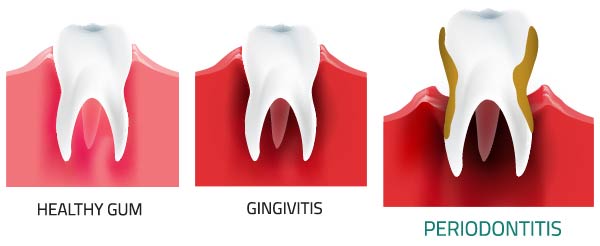
What is Periodontitis?
“Perio” means relating to the gums and the “itis” suffix refers to inflammation. Gum disease or gum inflammation is actually quite common, particularly in its earlier stage: gingivitis, caused by plaque build-up at the gingival margin (i.e. where the gum joins the tooth). When the plaque continues to build up, the bacteria start rapidly multiplying causing harmful by-products that trigger your body’s immune system. Inflammation of the gums is your body’s defence mechanism against the bacteria. If this is left untreated, over time the bacteria’s harmful by-products will turn into chronic infection that will eat away at the structures joining teeth to gums and it will also destroy the bone around teeth.
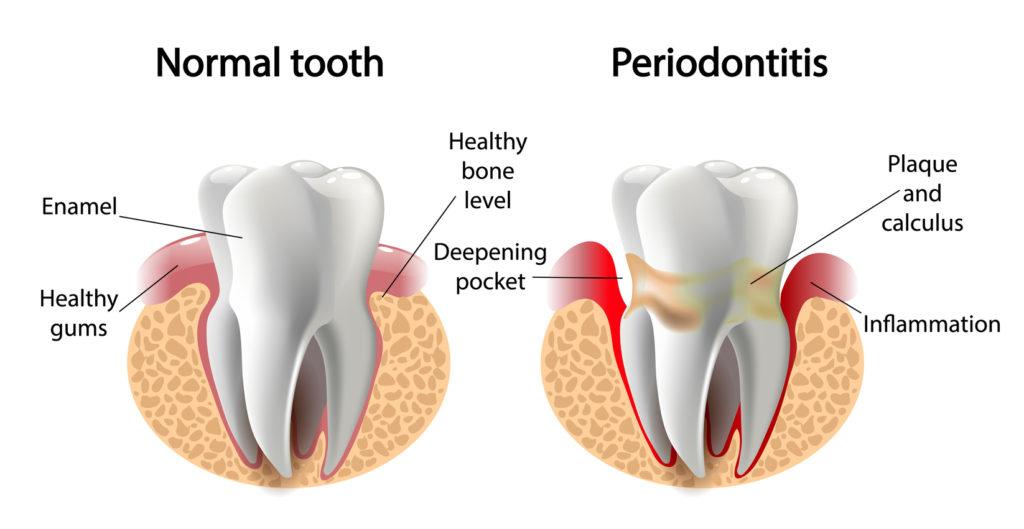
Some Signs to Recognise Periodontitis:
- Gums are swollen, bright red, bleeding (from brushing, flossing or eating) and/or tender to touch;
- Gums recede making the teeth look longer than they did previously;
- There are new/larger gaps in between teeth;
- Halitosis (bad breath);
- Loose teeth or a change in occlusion (i.e. how your teeth fit together); and
- Sometimes even pus can exude between teeth and gums (due to chronic infection).
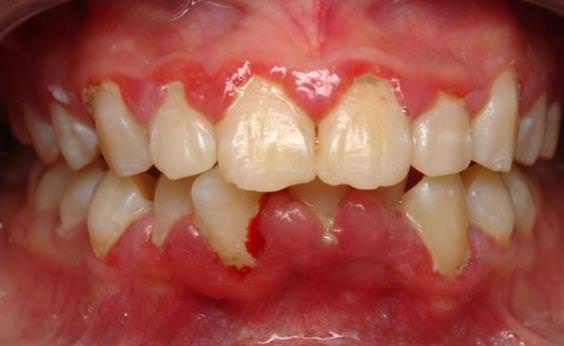
What Should You Do About It?
Ask Your Dentist
Always seek out your dentist first – they will be able to properly assess and diagnose your situation. Like all other types of diseases, it is always best to treat it in its early stages, so even if you are unsure, you should speak with your dentist.
Don’t Light Up
Smoking is one of the biggest issues with regards to periodontitis as it not only slows down any healing process and speeds up the rate of the disease, but it also masks symptoms of periodontitis (so a lot of smokers don’t know they are suffering from this disease until it is too late and they need corrective surgery or risk losing their teeth). An overwhelming majority of people suffering from periodontitis who don’t respond to treatment are smokers, so if you smoke and you are concerned about your periodontitis, your best first step would be to give it up.
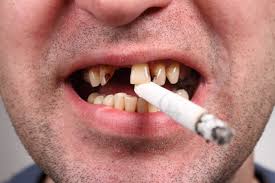
Mild and Advanced Measures
Preventative measures such as regular proper brushing and flossing, as well as using antibacterial mouthwashes, will go a long way in helping you avoid developing periodontitis. But if you have waited a bit too long and the plaque turns into calculus or tartar (mineralised fixed deposits that cannot be removed by regular brushing), then your dentist will help you with any of the following treatments:
- For gingivitis/initial stages of periodontitis: a thorough scale and clean of your teeth (removing all bacterial deposits and calculus from exposed root surfaces and gum pockets);
- For advanced periodontitis: periodontal debridement (where an ultrasonic device is used to remove large amounts of plaque and calculus under the gums with water and high-frequency vibrations);
- For extremely advanced periodontitis: there may be a need for surgical bone and tissue grafts (where new natural or synthetic bone and tissue is grafted into places of severe bone loss to try and encourage bone regeneration).
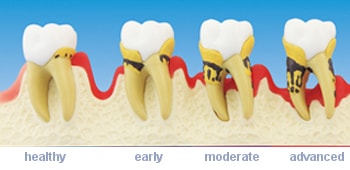
As gingival health is part of oral hygiene, this is something that you will need to attend to often. Regular check-ups and cleans with your dentist and daily oral hygiene practices can ensure your gums and teeth stay healthy and happy.
